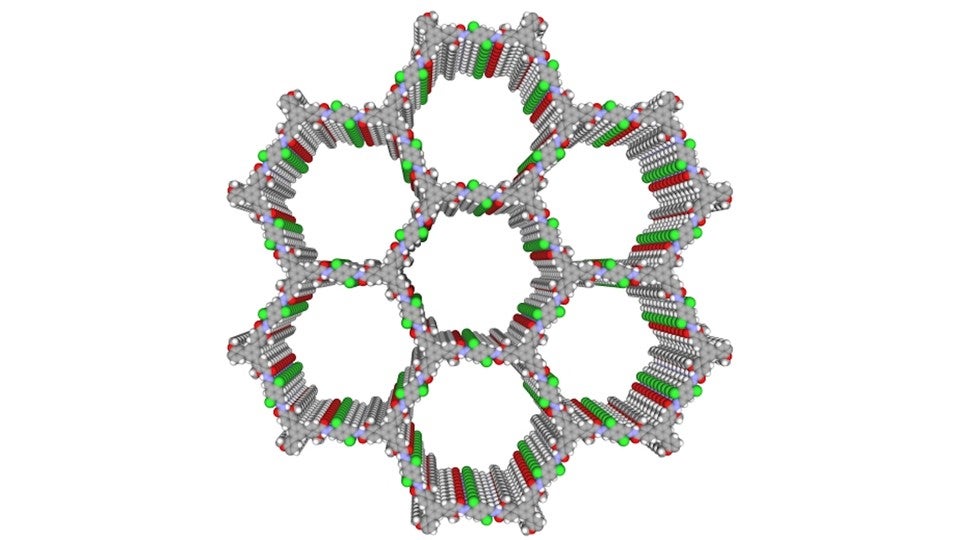Prof Jiang Donglin Wins Humboldt Research Award
December 22, 2021
Imagine a place full of moving lights of a hundred different colours changing rapidly under precision control, and one of the first things that comes to mind is a discotheque. A not-too-different scene is happening in the laboratory of Professor Jiang Donglin from NUS Chemistry – but at the nanoscale.
His experiments with light could actually save lives and even help save the planet. And his efforts have won him the Humboldt Research Award from Germany.
Funded by the Alexander von Humboldt Foundation in Germany, the Humboldt Research Award honours international scientists who are outstanding researchers in their field and whose work have had a significant impact on their own discipline and beyond.
Designing and manipulating two-dimensional polymeric materials
Prof Jiang is working on organic two-dimensional polymers, a kind of molecule that is very large but only a few molecules thick. He is a world expert in the field – in fact, he pioneered it.
When he got his first academic job working on 2D polymers in Japan many years ago, he wanted to do something no one had done before. Scientists had created self-assembling 2D polymers previously, but they had used noncovalent bonds, which are chemical bonds that do not involve the sharing of electrons between atoms.
Prof Jiang had the idea of creating 2D polymers using covalent bonds instead. These bonds can be found in organic compounds, which are substances that contain carbon-hydrogen bonds. The so-called covalent organic frameworks (COFs) created by Prof Jiang can form stable structures that are more complex than purely noncovalent polymers, giving scientists more flexibility in designing polymers with desired properties.
At NUS, Prof Jiang has been investigating the many potential “talents” of COFs, from energy storage to semiconductors to reducing emissions by absorbing and converting carbon dioxide. However, the chemical and physical properties of COFs cannot be easily controlled, making them unwieldy in practice.

Crystal structure of the covalent organic framework developed by Prof Jiang’s team, which can be adjusted to emit light in different colours.
In his latest research, Prof Jiang’s team found a way to easily and accurately modify the 2D molecular backbone of COFs with various atoms and molecules, such as hydrogen, chlorine and methyl groups, to induce emission of different wavelengths of light spanning the entire colour spectrum. Furthermore, their system is chemically stable and emits lots of light, taking it a big step towards actual light-emitting and sensing applications in the real world.
Their findings were published in Angewandte Chemie International Edition in June 2021, and has been categorised by the journal as a “Very Important Paper”. The research on COFs also contributes to NUS’ key focus areas of Materials Science, Smart Nation and Integrative Sustainability Solutions.
Pushing the frontiers of science through international collaboration
Prof Jiang plans to deepen his existing collaborations with four principal investigators at the Max Planck Institute for Polymer Research, Max Planck Institute for Solid State Research and Technische Universität Dresden. Each of them will work on a different aspect of 2D polymers and COFs. Three of Prof Jiang’s PhD students will also be involved.
Source article – Condensed from NUS News


